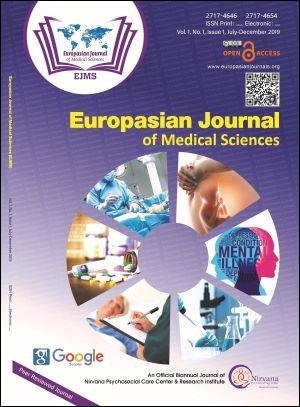Effectiveness of Integrated Approach on Cancer Care: A Case Study
Keywords:
Ayurveda, Cancer care, Case study, effectiveness, Integrated approachAbstract
Recurrence and metastasis is a great problem not only to the patient suffering from cancer but also to the doctors to care for the patient effectively. The present case study is a cancer case of a female, initially diagnosed with colon cancer in the year 1995 AD who underwent postsurgical and ayurvedic treatment simultaneously. The patient suffered from cancer in the different sites over the entire span of follow up duration of 24 years. Despite cancer growth since the initial diagnosis the patient suffered from uterine, renal cancers periodically and was successfully managed with the combined modern and ayurvedic approach. The patient enjoyed the quality and happy life with not much difficulty during the entire study period since the beginning of this case. The tools applied for the case study were observation, clinical examination, face to face interviews, laboratory investigation reports, phone contact, and family feedback.
The outcome of the study was highly remarkable and enthusiastic and revealed the outcome of ayurvedic and other holistic approaches that helped to promote the quality of life of cancer patients when combined with modern cancer care protocol. The study recommends conducting such research to analyses the effect of the integration of the ayurvedic treatment approach which will eventually help to effective cancer care in low-income countries such as Nepal.
Downloads
Downloads
Published
How to Cite
Issue
Section
License
The author(s) retain the ownership of the copyrights for their work published in EJMS without any restrictions. Upon submission, the author(s) grants EJMS a license to publish, including to display, store, copy, and reuse the published content.
License to Publish
By submitting a manuscript to EJMS, the author(s) grant the journal a non-exclusive license to:
- Publish and distribute the content in all formats, media, and platforms (both existing and future), while identifying EJMS as the original publisher.
- Reproduce, display, and store the content in both print and online formats, including institutional and digital repositories.
- Translate, adapt, and summarize the work, including reprints, extracts, and abstracts.
- Develop derivative works based on the original content.
- Include the work in electronic databases and provide links to third-party materials.
Creative Commons Licensing
In addition to EJMS’s publishing rights, authors grant third parties the right to use, share, and distribute their work under the Creative Commons Attribution 4.0 (CC BY 4.0) International License. This allows unrestricted use of the content, provided proper attribution is given to the original author(s) and the journal.

